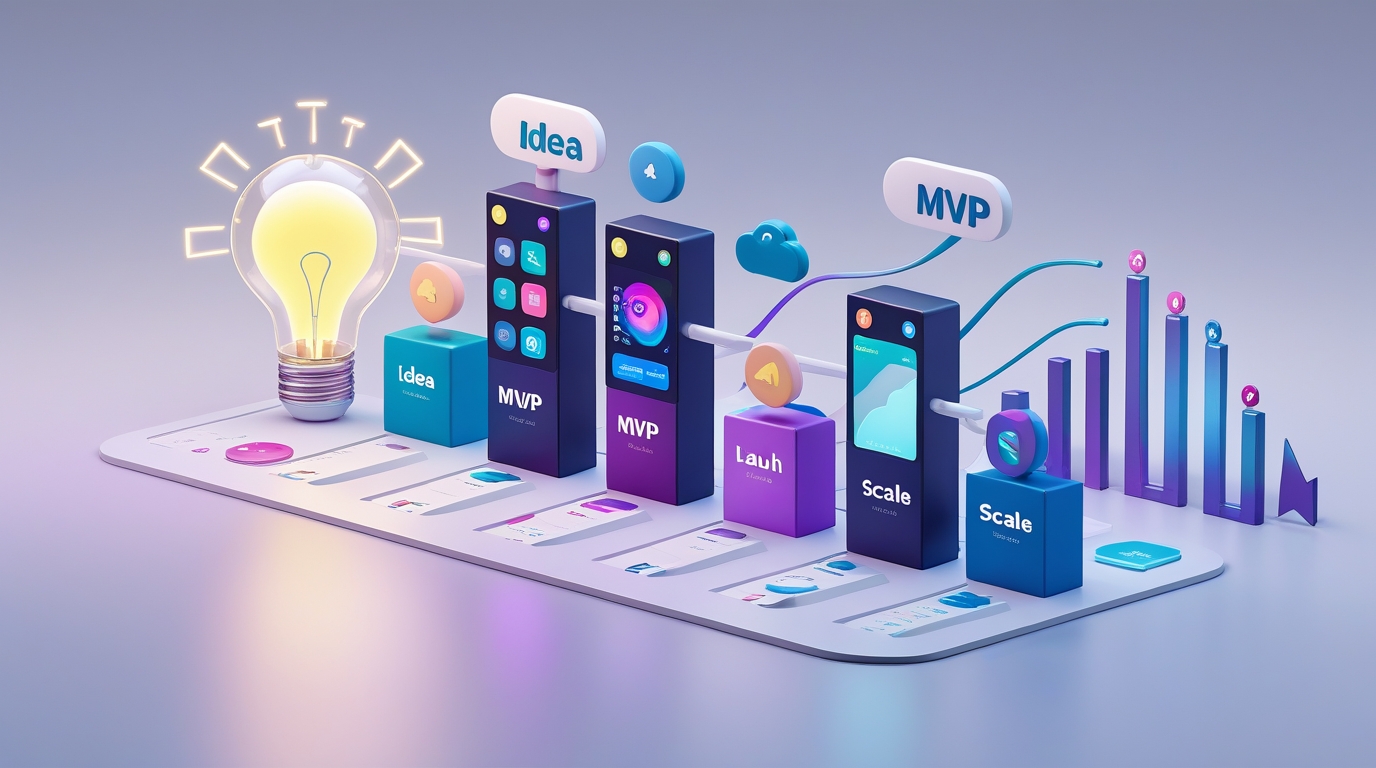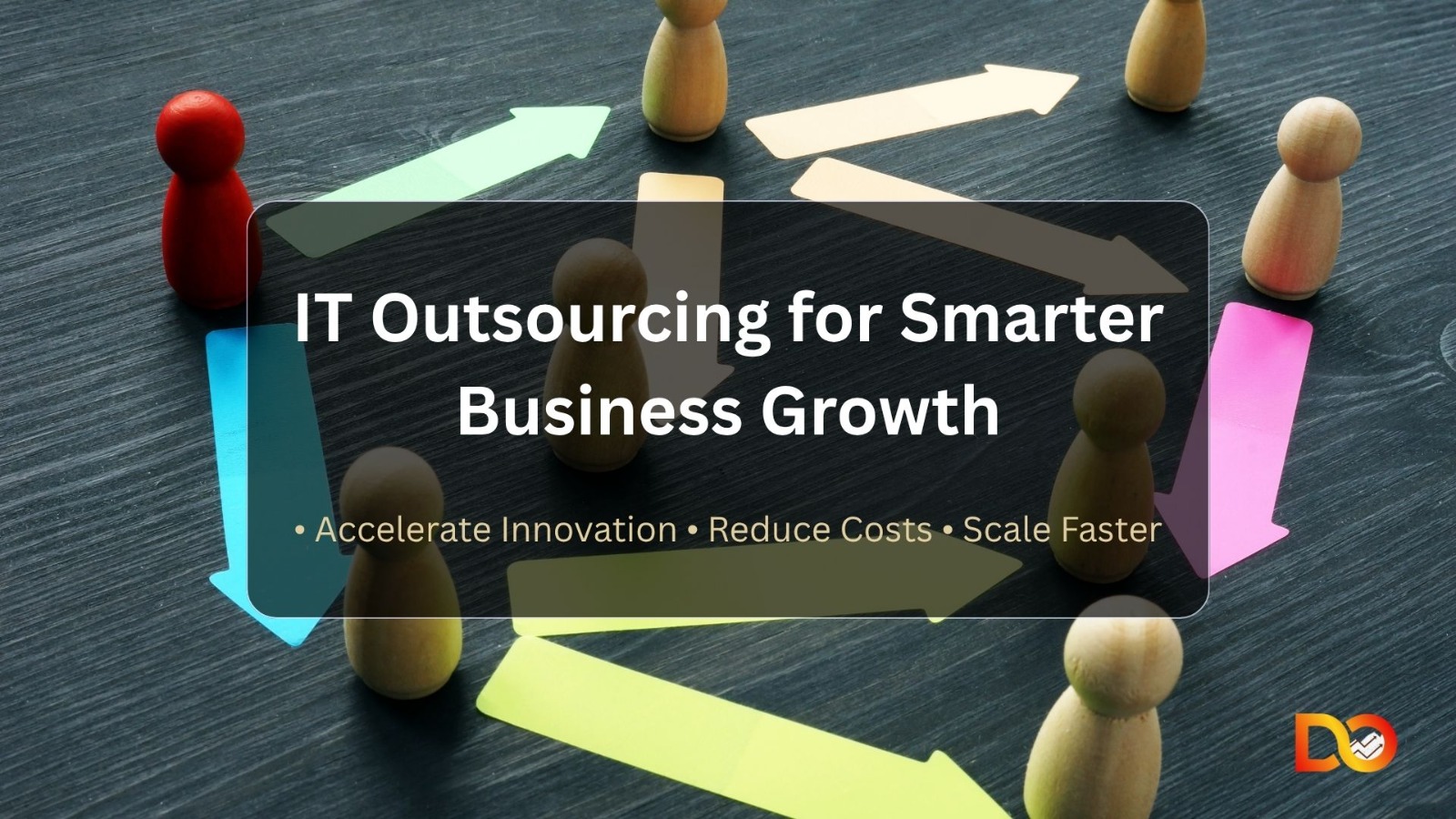1.Introduction: The Growing Role of IT in Healthcare
The Rising Complexity of Healthcare IT Challenges
The healthcare industry is evolving rapidly, yet many providers struggle to keep pace with modern IT demands. Today, data security threats, outdated systems, and inefficient workflows present significant challenges. Without robust healthcare IT solutions, patient care suffers, operational costs soar, and compliance risks escalate.
Challenges Healthcare Providers Face
Many organizations operate without the advanced IT solutions healthcare needs, leading to several issues:
- Data Security Risks: Cyber threats and compliance failures can lead to severe legal and financial penalties.
- Inefficient Workflows: Outdated systems slow down processes, diminishing overall productivity.
- Interoperability Issues: The absence of integration between EHRs, billing, and scheduling systems results in data silos.
- Rising Costs: Maintaining outdated software and relying on manual operations drive up expenses.
How DevOptiv’s IT Solutions Help
At DevOptiv, we offer tailored healthcare IT solutions designed to address these challenges. Our approach helps providers to:
- Strengthen Security: Advanced cybersecurity measures protect sensitive data from evolving threats.
- Improve Efficiency: Seamless system integration streamlines workflows, enhancing overall productivity.
- Lower Costs: Optimized IT infrastructure reduces operational expenses while boosting performance.
- Ensure Compliance: Our solutions support adherence to strict industry regulations, mitigating legal risks.

By embracing modern IT solutions healthcare offers, providers can enhance patient care, boost efficiency, and minimize risks. DevOptiv is dedicated to transforming healthcare through innovative IT strategies that meet the unique demands of the industry.
2. Why Healthcare Needs Specialized IT Solutions
The Unique Demands of the Healthcare Industry
Healthcare organizations operate in a highly regulated environment where securing patient data, complying with strict regulations, and optimizing workflows are essential—all while maintaining high-quality care. Unlike other sectors, these organizations face unique challenges that require specialized IT solutions tailored to their needs.
1. Secure Data Management & Electronic Health Records (EHRs)
Protecting patient information is critical in healthcare. To address this, healthcare IT managed services play a vital role by strengthening data security and ensuring compliance with HIPAA, GDPR, and other regulations. By adopting electronic health records (EHRs), providers can:
- Store Data Securely: Robust systems ensure that sensitive information is protected through encryption and secure storage.
- Provide Quick Access: Authorized personnel can quickly retrieve data, which is crucial during emergencies.
- Enable Seamless Sharing: Smooth information exchange among healthcare professionals enhances collaboration and patient care.
2. Enhancing Patient Engagement Through Digital Solutions
Modern patients expect easy access to their health information and convenient ways to interact with their providers. IT solutions for the healthcare industry can transform patient engagement by offering:
- Patient Portals: These platforms allow individuals to schedule appointments, view their medical records, and communicate directly with their doctors.
- Mobile Health Apps: These applications support features such as appointment reminders, prescription tracking, and virtual consultations, thereby improving overall patient experience.
3. Overcoming Interoperability Challenges
Many healthcare systems struggle with data silos and fragmented information. To overcome these challenges, healthcare IT consulting services focus on integrating disparate systems, including EHRs, billing platforms, and third-party applications. This integration helps to:
- Improve Efficiency: Streamlined data sharing reduces administrative burdens and minimizes errors.
- Enhance Communication: Integrated systems allow for better coordination among healthcare teams.
- Streamline Operations: A unified approach to data management leads to smoother workflows across the organization.
4. Reducing Operational Risks with IT Outsourcing
Managing IT infrastructure in-house can be both expensive and complex. Outsourcing IT services offers a practical solution by providing:
- 24/7 System Monitoring: Continuous oversight enhances security and minimizes the risk of cyberattacks.
- Disaster Recovery & Backup Solutions: These measures ensure data is not lost in the event of an unforeseen incident.
- Cost-Effective Management: Outsourcing reduces the overall IT burden and associated expenses, allowing providers to focus more on patient care.
By leveraging specialized IT solutions, healthcare organizations can not only meet regulatory and security demands but also optimize their operations for better patient outcomes. Embracing these technologies through dedicated healthcare IT services enables providers to overcome industry-specific challenges and deliver superior care in a secure, efficient, and patient-centric manner.
3. Core Healthcare IT Services at DevOptiv
DevOptiv offers comprehensive IT solutions designed specifically for the healthcare industry. These services ensure that providers not only meet stringent regulatory standards but also enhance patient care and operational efficiency.
3.1 Custom Healthcare Software Development
Tailored Solutions for Modern Healthcare Challenges
Healthcare providers require solutions that evolve with their unique needs. Unlike generic software, custom healthcare software development offers:
- Scalability: Designed to adapt as patient data grows and as requirements change.
- Security & Compliance: Built to meet strict healthcare data protection standards, including HIPAA and GDPR.
- Improved Efficiency: Automation of workflows minimizes administrative burdens.
Use Cases Include:
- Medical Billing Software: Streamlines payments and insurance claims by reducing errors.
- Patient Management Systems: Enhances appointment scheduling, records access, and overall patient engagement.
- Telehealth Platforms: Facilitates secure virtual consultations and remote monitoring.
- Workflow Automation Tools: Decrease manual tasks and improve operational efficiency.
Additionally, DevOptiv excels in medical device software development services by creating FDA-compliant solutions that ensure safety, accuracy, and seamless integration with existing systems. Moreover, our telemedicine software development services provide secure platforms for remote patient care, making it easier for providers to extend their reach.
3.2 IT Managed Services in Healthcare
Streamlined Operations with Proactive IT Support
Efficient IT infrastructure is vital for healthcare organizations. DevOptiv’s healthcare IT managed services are designed to:
- Ensure Regulatory Compliance: Our solutions adhere to HIPAA, GDPR, and other healthcare regulations.
- Provide 24/7 Cybersecurity Protection: Continuous monitoring prevents data breaches and cyberattacks.
- Offer Cloud Management: We optimize data storage, backup, and disaster recovery processes.
- Reduce IT Costs: By outsourcing IT support for medical offices and practices, healthcare providers can lower expenses while maintaining high system performance.
These managed IT services allow organizations to focus on patient care without worrying about technology challenges.
3.3 Medical Billing & Revenue Cycle Management
Optimizing Financial Workflows with Advanced Tools
Accurate and efficient billing is crucial to maintaining the revenue cycle in healthcare. DevOptiv’s approach includes:
- Automated Claims Processing: This reduces billing errors and accelerates reimbursements.
- Custom vs. Off-the-Shelf Solutions: We offer enterprise-level medical billing software that adapts to your specific needs, unlike generic solutions that may fall short.
- Integrated Approach: Our system integrates seamlessly with practice management, EHR, and accounting systems to provide real-time financial insights.
Read More : Automation: Transforming Processes with DevOptiv
By leveraging our integrated medical billing software solutions, whether you run a home-based business or a large facility, you can improve cash flow, reduce administrative burdens, and ensure that billing processes remain secure and compliant.
By choosing DevOptiv, healthcare providers gain access to tailored, secure, and compliant IT solutions that address modern challenges while preparing their organizations for the future. These services are built with flexibility and efficiency in mind, ensuring that healthcare IT remains a strong pillar supporting superior patient care.
4. Emerging Trends in Healthcare IT
Innovations Shaping the Future of Healthcare
Technology is transforming the healthcare landscape at an unprecedented pace. Innovations such as AI-driven analytics, IoT connectivity, SaaS-based platforms, and blockchain technology are not just buzzwords; they are fundamentally reshaping how care is delivered. As digital health software development continues to evolve, providers are leveraging these cutting-edge solutions to enhance efficiency, boost security, and ultimately improve patient outcomes. Here’s a closer look at the emerging trends set to revolutionize healthcare:
1. AI-Driven Analytics for Predictive Diagnostics
Artificial intelligence is at the forefront of healthcare IT analytics, offering powerful tools for early detection and personalized treatment. By processing vast amounts of data, AI algorithms can:
- Identify health risks before symptoms arise: Advanced analytics spot subtle patterns that might indicate early signs of disease, enabling proactive care.
- Enhance diagnostic accuracy: AI tools assist clinicians in confirming diagnoses with greater precision, reducing the risk of errors.
- Support clinical decision-making: Data-driven insights guide physicians towards more effective treatment strategies, leading to improved patient outcomes.
These capabilities not only streamline healthcare delivery but also lay the groundwork for a more predictive and preventative approach to medicine.
2. IoT in Patient Monitoring and Hospital Management
The Internet of Things (IoT) is transforming patient care and hospital operations by interconnecting devices, systems, and applications. In the healthcare IT platform, IoT enables:
- Real-time monitoring of vital signs: Wearable devices and sensors continuously track patient health, alerting providers to critical changes immediately.
- Optimized hospital asset management: Smart tracking systems monitor equipment usage and location, ensuring efficient resource allocation.
- Enhanced remote patient care: IoT-powered devices facilitate telemonitoring, allowing healthcare providers to extend care beyond traditional settings.
This interconnected network not only improves patient outcomes through continuous monitoring but also increases the operational efficiency of healthcare facilities.
3. SaaS-Based Healthcare Platforms & Their Growing Adoption
The healthcare SaaS market is rapidly expanding as organizations seek flexible, scalable, and cost-effective solutions. SaaS-based platforms offer numerous advantages, including:
- Cloud-based EHRs: Secure and flexible access to patient records enables healthcare providers to deliver timely care regardless of location.
- Telehealth and patient engagement tools: Integrated solutions foster remote consultations and enhance patient interaction, broadening the reach of healthcare services.
- Automated workflows: Streamlining administrative tasks through automation reduces the burden on staff, allowing them to focus on patient care.
The scalability and agility provided by SaaS solutions make them a compelling choice for healthcare organizations aiming to stay ahead in a fast-evolving digital landscape.
4. Blockchain for Secure & Tamper-Proof Medical Records
In an era where data security is paramount, blockchain technology is emerging as a powerful tool for protecting medical records. Its decentralized, tamper-proof framework offers several key benefits:
- Enhanced data security: Encrypted transactions ensure that patient information remains confidential and secure.
- Seamless data sharing: Blockchain allows for secure, verifiable sharing of medical records between providers, facilitating coordinated care without compromising privacy.
- Immutable records: Once data is recorded, unauthorized alterations are virtually impossible, thereby reducing the risk of fraud and data breaches.
Blockchain’s robust security features are increasingly critical as healthcare organizations strive to protect sensitive patient data while complying with rigorous regulatory standards.
As these emerging trends continue to evolve, embracing innovations like AI, IoT, SaaS, and blockchain will be essential for healthcare organizations. By integrating digital health software development and leveraging advanced healthcare IT analytics, providers can create more efficient, secure, and patient-centric care environments. The future of healthcare is digital—and these trends are paving the way for a more connected, responsive, and innovative system.
5. Choosing the Right Healthcare IT Partner
Key Factors for Selecting a Trusted Provider
Selecting the right healthcare IT service provider is one of the most important decisions a healthcare organization can make. The ideal partner not only understands the intricacies of the healthcare industry but also delivers secure, scalable, and compliant IT solutions. Below are the key factors to consider when evaluating healthcare IT solutions providers:
1. Industry Experience & Proven Track Record
A trustworthy IT partner should boast extensive experience in healthcare technology. For example, look for providers who have successfully implemented projects across hospitals, clinics, and medical practices. They should have a deep expertise in areas such as EHR integration, cybersecurity, and digital health solutions. Moreover, a proven track record and familiarity with healthcare-specific challenges are essential for a seamless partnership.
2. Scalability & Flexibility in IT Solutions
Healthcare organizations are constantly evolving, and your IT infrastructure should be able to grow with your needs. Therefore, it is crucial to choose a provider that offers scalable, cloud-based solutions. Customizable IT infrastructure is key, ensuring that systems can be tailored to various healthcare settings. Additionally, seamless integration with your existing software and workflows is a must, making adaptability a top priority when selecting a healthcare IT service provider.
3. Regulatory Compliance & Security Measures
Patient data security and regulatory compliance cannot be compromised. To illustrate, the best healthcare IT solutions providers enforce strict security protocols, including end-to-end encryption and secure data storage. They also conduct regular security audits and provide timely compliance updates to adhere to HIPAA, GDPR, and other industry regulations. Furthermore, continuous 24/7 monitoring helps prevent cybersecurity threats, ensuring your organization stays secure.
4. Client Success Stories & Testimonials
A solid reputation is built on success stories and positive client testimonials. Before finalizing your decision, review customer feedback that highlights seamless IT support and improved operational efficiency. Success stories that demonstrate how other healthcare organizations have benefited from the provider’s services add a layer of confidence. In essence, long-term partnerships with leading healthcare organizations speak volumes about a provider’s reliability and commitment.
By focusing on these key factors, healthcare organizations can confidently partner with a trusted healthcare IT service provider. Ultimately, this partnership not only enhances security and operational efficiency but also contributes significantly to improved patient care.
6.Success Story: Streamlining Operations for a Regional Hospital
Challenges: Legacy Systems & Inefficient Workflows
A mid-sized regional hospital struggled with outdated legacy systems that hampered daily operations. Consequently, inefficient workflows delayed patient care and created data silos that obstructed the seamless sharing of patient records across departments. Moreover, the hospital faced compliance risks because its security protocols no longer met current industry standards. In response, the hospital partnered with DevOptiv—a renowned healthcare IT service provider—to modernize its IT ecosystem.
Solution: Custom EHR Integration & Process Automation
DevOptiv developed a tailored solution that addressed these challenges head-on. Firstly, the team replaced obsolete systems with custom hospital software designed to streamline operations. Next, they integrated electronic health records (EHR) seamlessly to enable real-time data sharing. Additionally, automated workflows were introduced to reduce the administrative burden, and enhanced security measures were implemented to ensure compliance with HIPAA and GDPR requirements.
Results: Cost Savings & Improved Patient Care
Within six months, the hospital experienced significant improvements. Administrative costs dropped by 30% thanks to the newly automated processes, and faster access to patient records improved care coordination considerably. Furthermore, strengthened data security and compliance measures minimized regulatory risks. Overall, leveraging custom hospital software development transformed the hospital’s IT infrastructure, ensuring greater efficiency, robust security, and superior patient care.
7. FAQs: Answering Your Healthcare IT Questions
💡 What is the best IT support for a medical office?
DevOptiv provides 24/7 IT support tailored specifically for healthcare needs. Their round-the-clock service ensures that medical offices have reliable and secure IT support for medical office operations at all times.
💡 What are the benefits of telemedicine software development?
Telemedicine software development services offer numerous advantages. For instance, they enhance remote care, which improves patient accessibility and reduces operational costs. As a result, healthcare providers can extend their reach beyond traditional settings while maintaining high-quality care.
💡 Which healthcare IT solutions provider is best for small clinics?
DevOptiv stands out as a trusted healthcare IT service provider for clinics, hospitals, and telehealth platforms. Their customized IT solutions are specifically designed to meet the unique challenges of small clinics, ensuring scalability, security, and regulatory compliance.
💡 How does medical billing software improve revenue cycle management?
Integrated medical billing software automates the claims processing workflow, which reduces errors and accelerates payment cycles. Consequently, this approach streamlines revenue cycle management, allowing healthcare providers to focus more on patient care while ensuring compliance and operational efficiency.
10.Ready to Transform Your Healthcare IT? Contact DevOptiv Today!
At DevOptiv, we excel as a trusted healthcare IT service provider by delivering end-to-end IT solutions that empower healthcare organizations to improve patient care, enhance data security, and streamline operations. Moreover, as one of the top healthcare IT solutions providers, our expert team is dedicated to offering innovative, customized strategies that meet your unique needs.
In addition, take the first step toward digital transformation with a free consultation or IT audit. By doing so, you can optimize your IT infrastructure and secure your future in healthcare.

Finally, contact DevOptiv today and discover the difference tailored IT solutions can make for your organization
Want to grow your healthcare business ? check our blog SEO For Healthcare







